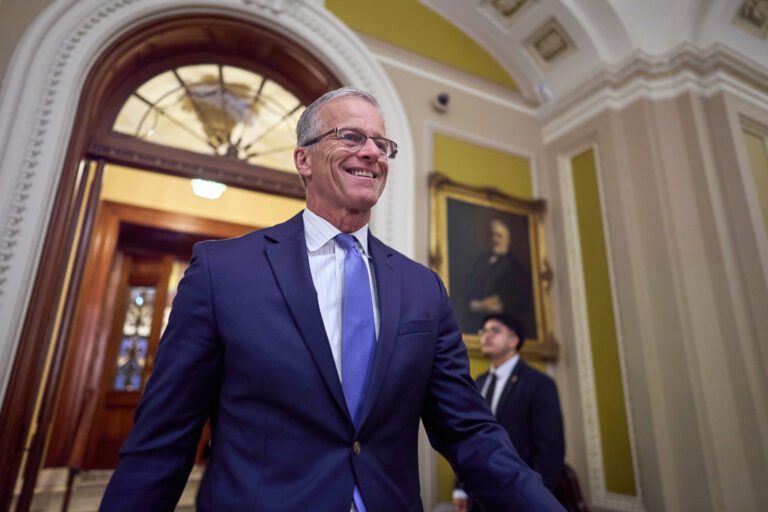Tensions Rise Between House and Senate Republicans Over Key Bill
The ongoing conflict between House and Senate Republicans has come to a head as Senator John Thune urges his colleagues to finalize their comprehensive legislation by the end of the week. Negotiations surrounding the One Big Beautiful Bill Act are intensified, yet House GOP members continue to voice dissent over the Senate’s proposals, complicating the path to agreement.
Key Players and Proposals
Senate Republicans have spent the week in closed-door meetings, attempting to finalize important provisions of the legislation. Some of the primary figures and their contrasting viewpoints include:
- Senator Rick Scott and Senator Ron Johnson: Propose significant changes to Medicaid funding which have faced resistance from moderates in both chambers.
- Senator Rand Paul: Seeks the removal of the debt limit increase from the bill, a demand increasingly deemed impractical.
- Senator Mike Lee and Senator Lisa Murkowski: Advocate for maintaining certain green energy tax credits, although House Freedom Caucus members are pushing for their immediate elimination.
The SALT Cap Controversy
A crucial point of contention is the State and Local Tax (SALT) deduction cap. House Republicans from blue states have negotiated a new cap of $40,000 for individuals earning less than half a million dollars annually. However, Senate Republicans remain opposed to any SALT deduction entirely.
- Senator Mark Mullin, a former House member, serves as the go-between for the two chambers, but his efforts face hurdles. Congressman Nick LaLota from New York recently shared:
"Seems like we’re somewhere between stalled and dead. The Senate needs to accept the House-passed version of the SALT deal, or we’ll walk."
Senator Kevin Cramer underscored his view on the SALT cap, stating:
“I’d like it to be zero.”
This disconnect illustrates broader frustrations among Republican lawmakers, especially those from high-tax states like New York and New Jersey.
House Freedom Caucus Stance
Members of the House Freedom Caucus have expressed their opposition to the current version of the bill. Their chairman, Congressman Andy Harris, has declared he will not support the legislation in its present form. Other members, such as Congressman Chip Roy and Congressman Eric Burlison, have also yet to commit as they await the Senate’s actions.
Medicaid Funding Challenges
Discussions around Medicaid provisions have further complicated the negotiations. Conservative lawmakers are pushing for states to shoulder more costs, but representatives from rural states warn this could threaten the viability of small hospitals. Lawmakers like Murkowski, Collins, Hawley, and Moran have made it clear that changes affecting state reimbursement rates are unacceptable.
One potential solution being explored is the establishment of a trust fund dedicated to rural hospitals. Senator Josh Hawley stated:
“They need to ensure rural hospitals will stay funded. It would need to be a pretty big figure—upwards of $100 billion.”
The Road Ahead
As Congress approaches its self-imposed deadline for the bill to reach President Trump by the Fourth of July, the complexities of negotiation appear increasingly daunting. The split between the House and Senate Republicans could impact legislative momentum, placing pressure on leaders to find a resolution.
With voices from multiple factions within the Republican Party demanding clarification and action, the stakes are high as lawmakers aim to unify their approaches and advance initiatives critical to their constituents.
For more information on the implications of these developments, check out sources on SALT deductions, Medicaid funding, and the ongoing legislative process in Congress.


